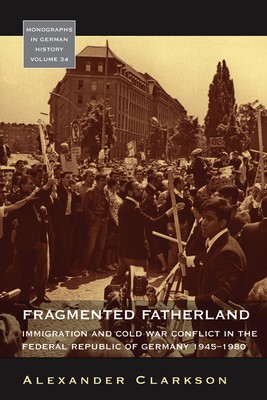
- We will send in 10–14 business days.
- Author: Alexander Clarkson
- Publisher: Berghahn Books
- ISBN-10: 1785330306
- ISBN-13: 9781785330308
- Format: 15.2 x 22.9 x 1.3 cm, softcover
- Language: English
- SAVE -10% with code: EXTRA
Reviews
Description
1945 to 1980 marks an extensive period of mass migration of students, refugees, ex-soldiers, and workers from an extraordinarily wide range of countries to West Germany. Turkish, Kurdish, and Italian groups have been studied extensively, and while this book uses these groups as points of comparison, it focuses on ethnic communities of varying social structures--from Spain, Iran, Ukraine, Greece, Croatia, and Algeria--and examines the interaction between immigrant networks and West German state institutions as well as the ways in which patterns of cooperation and conflict differ. This study demonstrates how the social consequences of mass immigration became intertwined with the ideological battles of Cold War Germany and how the political life and popular movements within these immigrant communities played a crucial role in shaping West German society.
EXTRA 10 % discount with code: EXTRA
The promotion ends in 16d.18:52:08
The discount code is valid when purchasing from 10 €. Discounts do not stack.
- Author: Alexander Clarkson
- Publisher: Berghahn Books
- ISBN-10: 1785330306
- ISBN-13: 9781785330308
- Format: 15.2 x 22.9 x 1.3 cm, softcover
- Language: English English
1945 to 1980 marks an extensive period of mass migration of students, refugees, ex-soldiers, and workers from an extraordinarily wide range of countries to West Germany. Turkish, Kurdish, and Italian groups have been studied extensively, and while this book uses these groups as points of comparison, it focuses on ethnic communities of varying social structures--from Spain, Iran, Ukraine, Greece, Croatia, and Algeria--and examines the interaction between immigrant networks and West German state institutions as well as the ways in which patterns of cooperation and conflict differ. This study demonstrates how the social consequences of mass immigration became intertwined with the ideological battles of Cold War Germany and how the political life and popular movements within these immigrant communities played a crucial role in shaping West German society.


Reviews